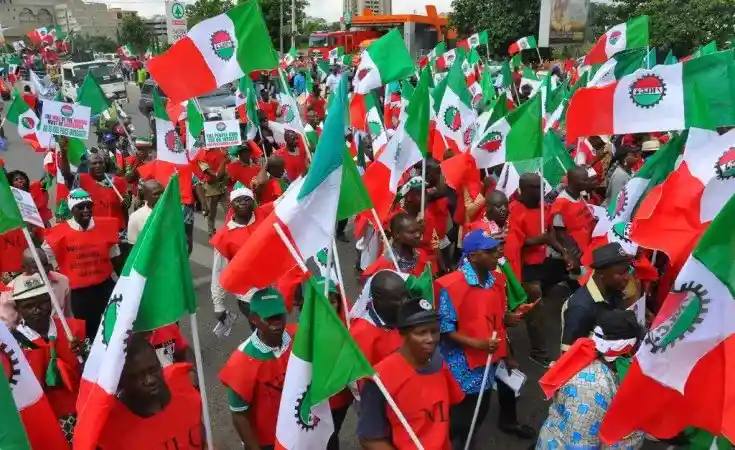Breaking: FG, Labour In Emergency Meeting As Strike Grounds Economic Activities
Economic activities across Nigeria have come to a standstill as the nationwide strike by the Organised Labour enters its second day. The Federal Government has summoned labour leaders to an emergency meeting in Abuja, seeking to resolve the deadlock over the demand for a new minimum wage.
Leading the labour delegation are the President of the Nigeria Labour Congress (NLC), Joe Ajaero, and the President of the Trade Union Congress (TUC), Festus Osifo. Representing the government are the Secretary to the Government of the Federation, George Akume; Minister of Information, Mohammed Idris Malagi; and Labour Minister Nkiruka Onyejeocha, among others.
The strike, which commenced on Monday, has significantly disrupted businesses, airports, universities, hospitals, and power supply. Both the NLC and TUC have insisted that the current minimum wage of ₦30,000 is inadequate to sustain the average Nigerian worker, noting that several state governors are yet to implement the existing wage, which expired in April 2024. The Minimum Wage Act of 2019 mandates a review every five years, a timeline that has now lapsed.
The Organised Labour set a deadline of May 31 for the government to agree on a new minimum wage. With no resolution reached by the deadline, labour leaders declared an indefinite strike starting June 3, 2024, citing the government’s inability to meet their demands, which include a reversal of the recent electricity tariff hike.
How Heritage Bank Customers Can Get ₦5m Insured Funds: NDIC Gives Step-By-Step Process
Negotiations have been fraught, with Labour rejecting three government proposals, the most recent offering ₦60,000. The unions are steadfast in their demand for a new minimum wage of ₦494,000.
Finance Minister Wale Edun, speaking on Channels Television’s Sunday Politics programme, acknowledged the legitimacy of the workers’ demands but highlighted the financial constraints. Edun emphasised the challenge of affordability, particularly for smaller businesses and local governments, if a new wage scale is implemented.
Fulani Herdsmen Ra)pe 13-year-old Girl, Kill Rescuer in Enugu
“It is difficult because the worker deserves his wage, and given what is going on, they deserve a change and, by law, every five years, and maybe, we shouldn’t have to wait five years every time to set a new wage scale,” Edun said. He further noted that a fixed minimum wage must be manageable for all sectors required to pay it.
As the government and labour leaders continue their deliberations, the nation awaits a resolution to the impasse that has halted economic activities and heightened tensions across the country.
Stay informed with Ejes Gist News – Your Source for Credible News in Nigeria Now.

